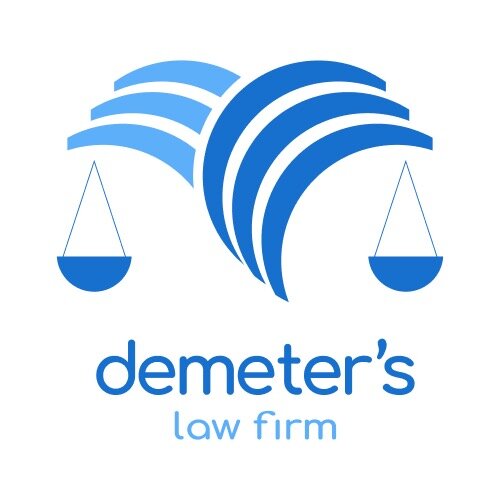Best Employment Benefits & Executive Compensation Lawyers in Nigeria
Share your needs with us, get contacted by law firms.
Free. Takes 2 min.
Or refine your search by selecting a city:
List of the best lawyers in Nigeria
Legal guides written by Adeola Oyinlade & Co:
- Procedure and Requirements for Work Permit and Visas in Nigeria
- The Step-By-Step Procedure of How to Apply for Microfinance Bank License Online in Nigeria
- How to Ensure the Smooth Recognition and Enforcement of Foreign Judgments in Nigeria
About Employment Benefits & Executive Compensation Law in Nigeria
Employment Benefits & Executive Compensation in Nigeria encompass a wide array of financial and non-financial rewards offered to employees and executives. These may include salary, bonuses, health insurance, pensions, stock options, and severance packages, among others. The legal framework governing these areas is complex, involving various regulations that seek to ensure fair remuneration and protect the rights of employees. Key laws include the Labour Act, Pension Reform Act, and guidelines issued by the National Pension Commission (PenCom). Understanding these regulations is critical for both employers and employees to ensure compliance and secure entitlements.
Why You May Need a Lawyer
Legal expertise in Employment Benefits & Executive Compensation can be crucial in numerous scenarios. For employees, disputes regarding unpaid benefits, unclear compensation terms, wrongful termination, or pension entitlement issues often necessitate legal intervention. Employers may require legal advice to navigate regulatory compliance, draft clear compensation policies, handle disputes with employees, or ensure proper tax treatment of benefits. Additionally, for executives negotiating complex compensation packages, legal counsel can provide crucial support in structuring offers, evaluating equity options, and understanding contractual obligations.
Local Laws Overview
Nigerian employment and compensation laws involve several key statutes and regulatory bodies:
- Labour Act: Outlines minimum employment standards, including leave entitlements and anti-discrimination provisions, but notably, it does not specifically cover executive compensation.
- Pension Reform Act: Governs the administration of pension funds and contributions, aiming to ensure that employees have retirement security.
- Companies and Allied Matters Act (CAMA): Relevant for executive compensation, particularly concerning stock options and shares awarded to executives.
- National Pension Commission (PenCom): Supervises pension schemes and enforces compliance with the Pension Reform Act.
- Personal Income Tax Act (PITA): Important for understanding the tax liabilities associated with employee benefits and executive compensation.
The intricacies of these laws underline the importance of professional guidance to navigate legal obligations effectively.
Frequently Asked Questions
What are the typical components of executive compensation in Nigeria?
Executive compensation typically includes a mix of base salary, bonuses, equity awards (such as stock options or restricted stock), benefits, and severance packages.
Are all employees entitled to pension benefits under Nigerian law?
Yes, employees in the formal sector are covered under the Pension Reform Act, which mandates contributions to the Retirement Savings Account.
Can an employer unilaterally change the terms of an employee's benefits?
No, changes to employee benefits typically require the employee’s consent and must comply with the terms of the employment contract and relevant law.
What should I do if my employer is not remitting my pension contributions?
You should report the issue to PenCom as they oversee compliance with pension regulations. Legal advice may also be necessary to address the issue.
How is executive compensation taxed in Nigeria?
Executive compensation is subject to personal income tax under PITA. The specific taxes depend on the nature of the compensation (e.g., salary, bonuses, or stock options).
What protections exist for whistleblowers in executive compensation cases?
While there are some general protections, seeking legal counsel is advisable for specific guidance as Nigeria’s whistleblower protections are still developing.
How do stock options work in Nigeria?
Stock options give employees the right to purchase company stock at a set price. Legal assistance is recommended to understand the regulatory and tax implications.
Can executives be held personally liable for mismanagement of employee benefits?
Yes, executives can be held liable, particularly if actions are found to be fraudulent or in violation of fiduciary duties.
What recourse do I have if my severance package is denied?
Review your employment contract and consult with a lawyer to explore legal action or negotiation for enforcement of entitlements.
Are social security benefits part of executive compensation in Nigeria?
No, Nigeria does not have a general social security system; however, certain social benefits like pensions form part of compensation structures.
Additional Resources
Individuals seeking further information or requiring assistance can refer to the following resources:
- National Pension Commission (PenCom): Offers guidance on pension matters and compliance.
- Nigeria Labour Congress: Provides support and advocacy for employee rights.
- Nigerian Bar Association: Can help find experienced employment law professionals.
Next Steps
If you need legal assistance for Employment Benefits & Executive Compensation in Nigeria, consider the following steps:
- Consult with a specialized employment or compensation lawyer to understand your rights and obligations.
- Gather all relevant documents, such as employment contracts, benefit statements, and correspondence with your employer.
- Prepare a list of your questions and concerns to discuss with your legal advisor.
- Consider alternative dispute resolution methods, such as mediation or arbitration, if appropriate.
Timely legal consultation can safeguard your interests and help you navigate complex compensation and benefits issues effectively.
Lawzana helps you find the best lawyers and law firms in Nigeria through a curated and pre-screened list of qualified legal professionals. Our platform offers rankings and detailed profiles of attorneys and law firms, allowing you to compare based on practice areas, including Employment Benefits & Executive Compensation, experience, and client feedback.
Each profile includes a description of the firm's areas of practice, client reviews, team members and partners, year of establishment, spoken languages, office locations, contact information, social media presence, and any published articles or resources. Most firms on our platform speak English and are experienced in both local and international legal matters.
Get a quote from top-rated law firms in Nigeria — quickly, securely, and without unnecessary hassle.
Disclaimer:
The information provided on this page is for general informational purposes only and does not constitute legal advice. While we strive to ensure the accuracy and relevance of the content, legal information may change over time, and interpretations of the law can vary. You should always consult with a qualified legal professional for advice specific to your situation.
We disclaim all liability for actions taken or not taken based on the content of this page. If you believe any information is incorrect or outdated, please contact us, and we will review and update it where appropriate.
Browse employment benefits & executive compensation law firms by city in Nigeria
Refine your search by selecting a city.

















